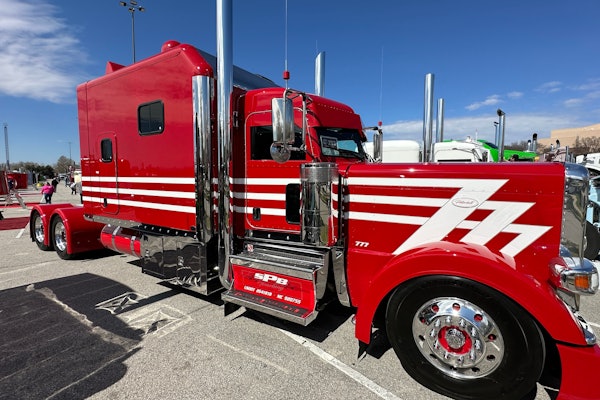By Randy Grider
Editor
[email protected]
What’s the most widely publicized trucking issue? It’s the so-called driver shortage.
I pulled up the Google search engine today, clicked on the News tab and typed in “trucking.” After about two minutes, I forgot what I was originally searching for. Literally dozens of recent stories on the driver shortage popped up from my generic search.
I refined my search with the words “truck driver shortage.” More than 600 stories had been written, primarily by the mainstream press, in the past couple of months.
This included one story our editorial staff did in the past week concerning the American Trucking Associations and Truckload Carriers Association joining the Alliance for an Experienced Workforce, an effort to help employers create workplaces that attract and keep employees age 50 and older. The Alliance was developed from a National Advisory Council formed to advise AARP on workplace and workforce strategies.
The trucking industry’s most widely kicked about number today for the driver shortage is approximately 20,000 for long-haul drivers. The driver shortfall is projected to reach 111,000 by 2014 (Global Insight study for ATA) if current trends don’t change.
Are those numbers accurate? It’s hard to say with the constant churn of today’s driver pool. (Would everyone please hold still for a moment so we can get a head count?) While some of you may dispute whether there is really a shortage of drivers, some facts are hard to dismiss.
First, look at the increases in compensation for drivers over the past couple of years. Many fleets have not only raised pay, but are now offering innovative benefit packages – from more guaranteed home time to company stock packages – to attract and retain drivers.
Players within the trucking industry have been forced not only to compete with each other, but with other industries for employees, especially in manufacturing and construction. And many believe the compensation packages will only get better.
In the March cover story of Overdrive, trucking analysts suggested annual average salaries for truckers would need to hit somewhere from $60,000 to $85,000 within the next decade to ease the shortage.
While salaries such as these would definitely make the profession more attractive to the overall workforce, they wouldn’t totally solve the problems of the industry. At some point, the trucking infrastructure has to make additional improvements to the lifestyle of drivers – specifically better work schedules and more home time.
And as I’ve said before, drivers have to be educated on how they can make trucking a career, not just a job. That must start at the top management of fleets and become the philosophy of the industry.
Second, examine recruiting. It’s now much more aggressive than just offering huge sign-on bonuses as was the case in the past. Recruiters are becoming better educated about the demographics.
Recruiters see more women and the growing immigrant populations as valuable sources for drivers.
They also realize the U.S. workforce is aging and are beginning to turn their attention to older workers as a source for drivers. This is somewhat a Band-Aid measure, because it doesn’t solve the long-term problem. Still, it does buy the industry some time.
And finally, some recruiters have become more proactive in stealing from each other. Courts are being forced to settle cases concerning unfair recruiting tactics between fleets. This is a fly in the ointment because constant churn doesn’t help the shortage problem; it only complicates the matter.
The driver shortage has become a windfall for many drivers. It’s helping bring driver compensation up to a level truckers deserve. That should continue, according to industry experts.
For fleets, the driver shortage is a challenge. It hasn’t hit the crisis stage for most, but it has put a severe strain on growth. In the near future, finding new drivers could become a matter of survival for some carriers.
It all boils down to free-market economics, which will continue to force corrections and adjustments within the trucking industry. The industry is evolving. Some will gain, some will lose, but everyone will have to adapt.






